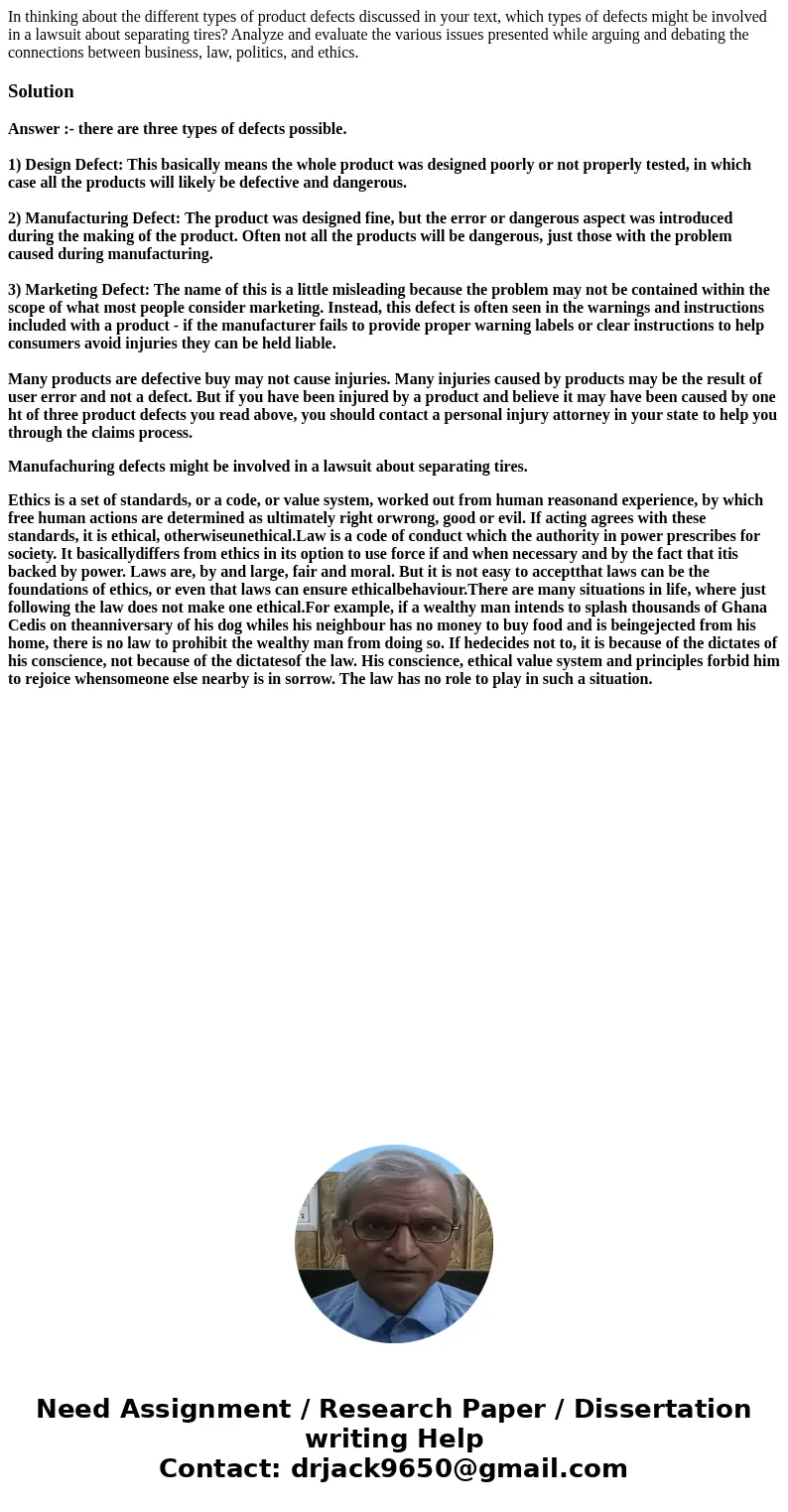In thinking about the different types of product defects dis
In thinking about the different types of product defects discussed in your text, which types of defects might be involved in a lawsuit about separating tires? Analyze and evaluate the various issues presented while arguing and debating the connections between business, law, politics, and ethics.
Solution
Answer :- there are three types of defects possible.
1) Design Defect: This basically means the whole product was designed poorly or not properly tested, in which case all the products will likely be defective and dangerous.
2) Manufacturing Defect: The product was designed fine, but the error or dangerous aspect was introduced during the making of the product. Often not all the products will be dangerous, just those with the problem caused during manufacturing.
3) Marketing Defect: The name of this is a little misleading because the problem may not be contained within the scope of what most people consider marketing. Instead, this defect is often seen in the warnings and instructions included with a product - if the manufacturer fails to provide proper warning labels or clear instructions to help consumers avoid injuries they can be held liable.
Many products are defective buy may not cause injuries. Many injuries caused by products may be the result of user error and not a defect. But if you have been injured by a product and believe it may have been caused by one ht of three product defects you read above, you should contact a personal injury attorney in your state to help you through the claims process.
Manufachuring defects might be involved in a lawsuit about separating tires.
Ethics is a set of standards, or a code, or value system, worked out from human reasonand experience, by which free human actions are determined as ultimately right orwrong, good or evil. If acting agrees with these standards, it is ethical, otherwiseunethical.Law is a code of conduct which the authority in power prescribes for society. It basicallydiffers from ethics in its option to use force if and when necessary and by the fact that itis backed by power. Laws are, by and large, fair and moral. But it is not easy to acceptthat laws can be the foundations of ethics, or even that laws can ensure ethicalbehaviour.There are many situations in life, where just following the law does not make one ethical.For example, if a wealthy man intends to splash thousands of Ghana Cedis on theanniversary of his dog whiles his neighbour has no money to buy food and is beingejected from his home, there is no law to prohibit the wealthy man from doing so. If hedecides not to, it is because of the dictates of his conscience, not because of the dictatesof the law. His conscience, ethical value system and principles forbid him to rejoice whensomeone else nearby is in sorrow. The law has no role to play in such a situation.

 Homework Sourse
Homework Sourse